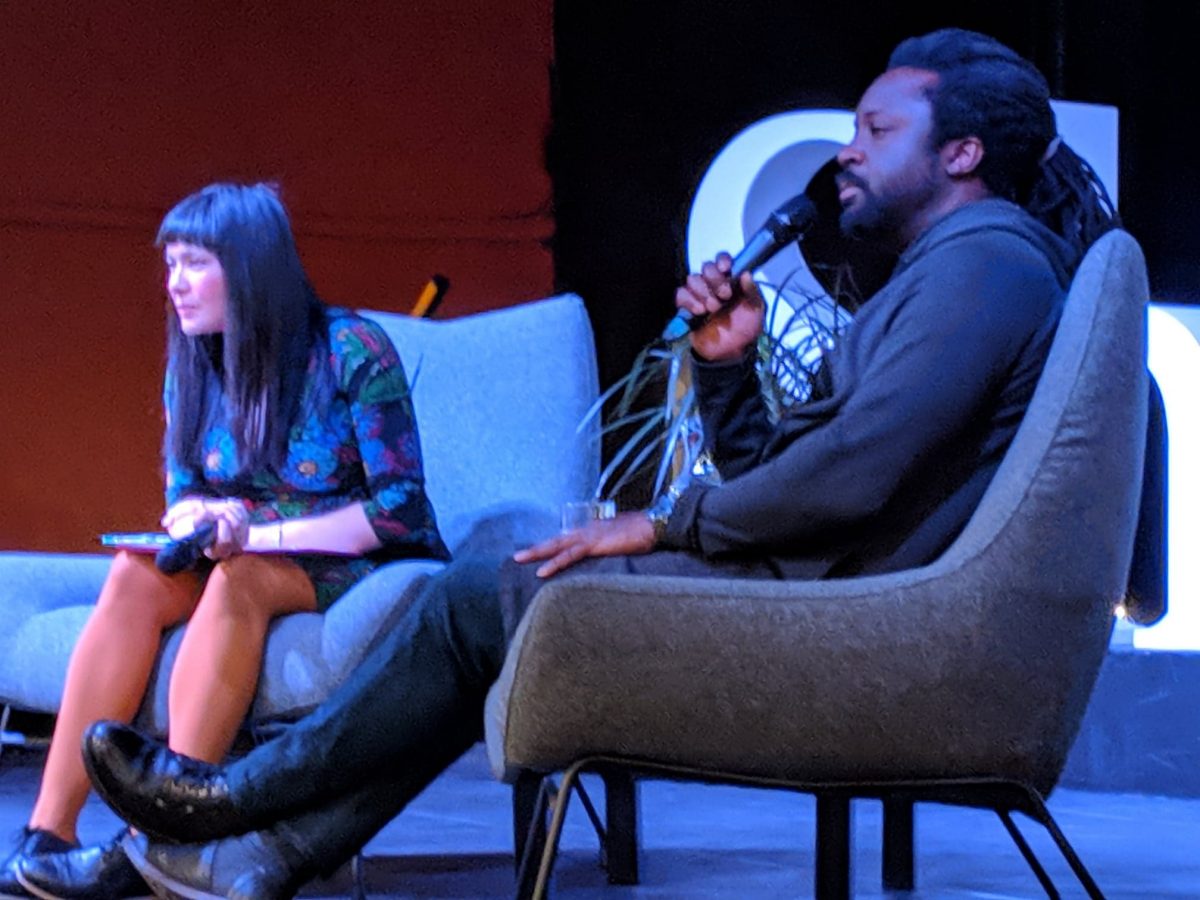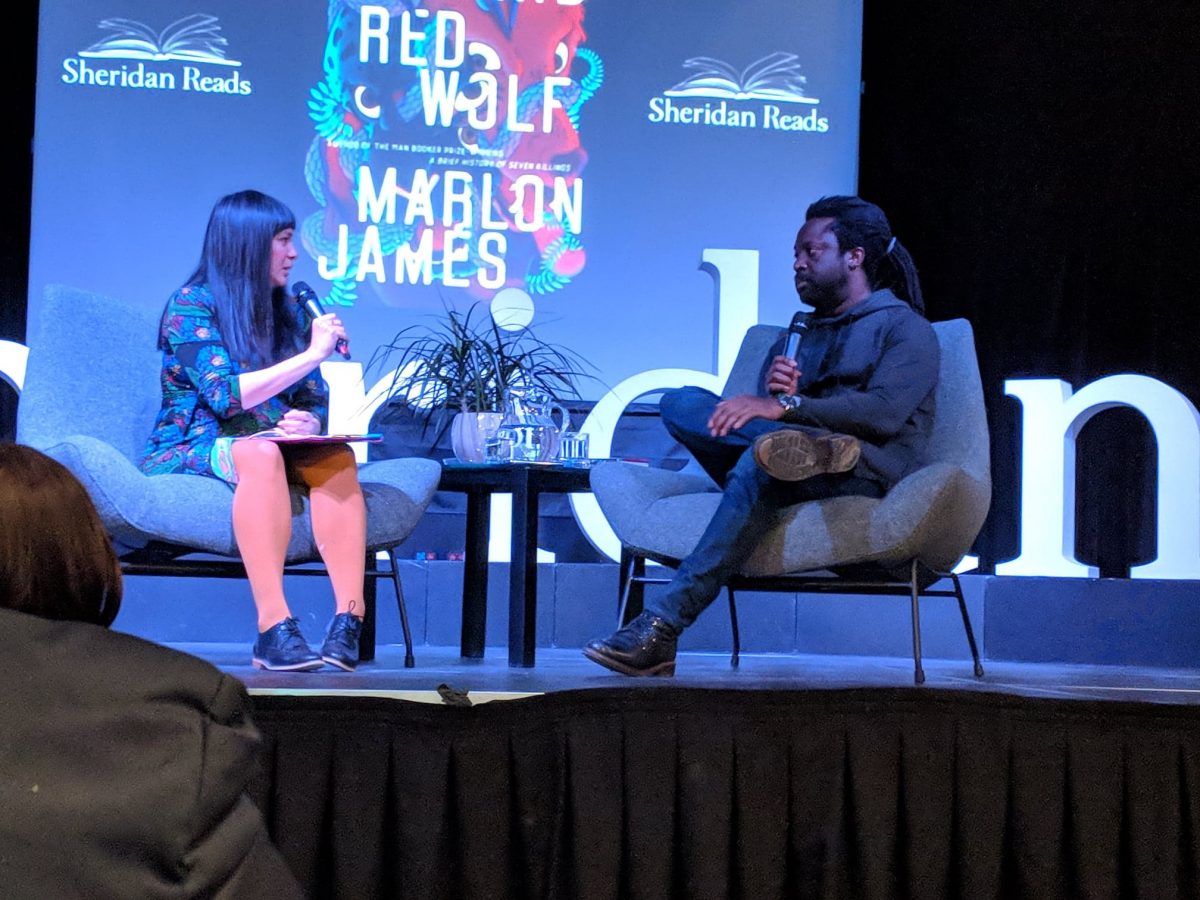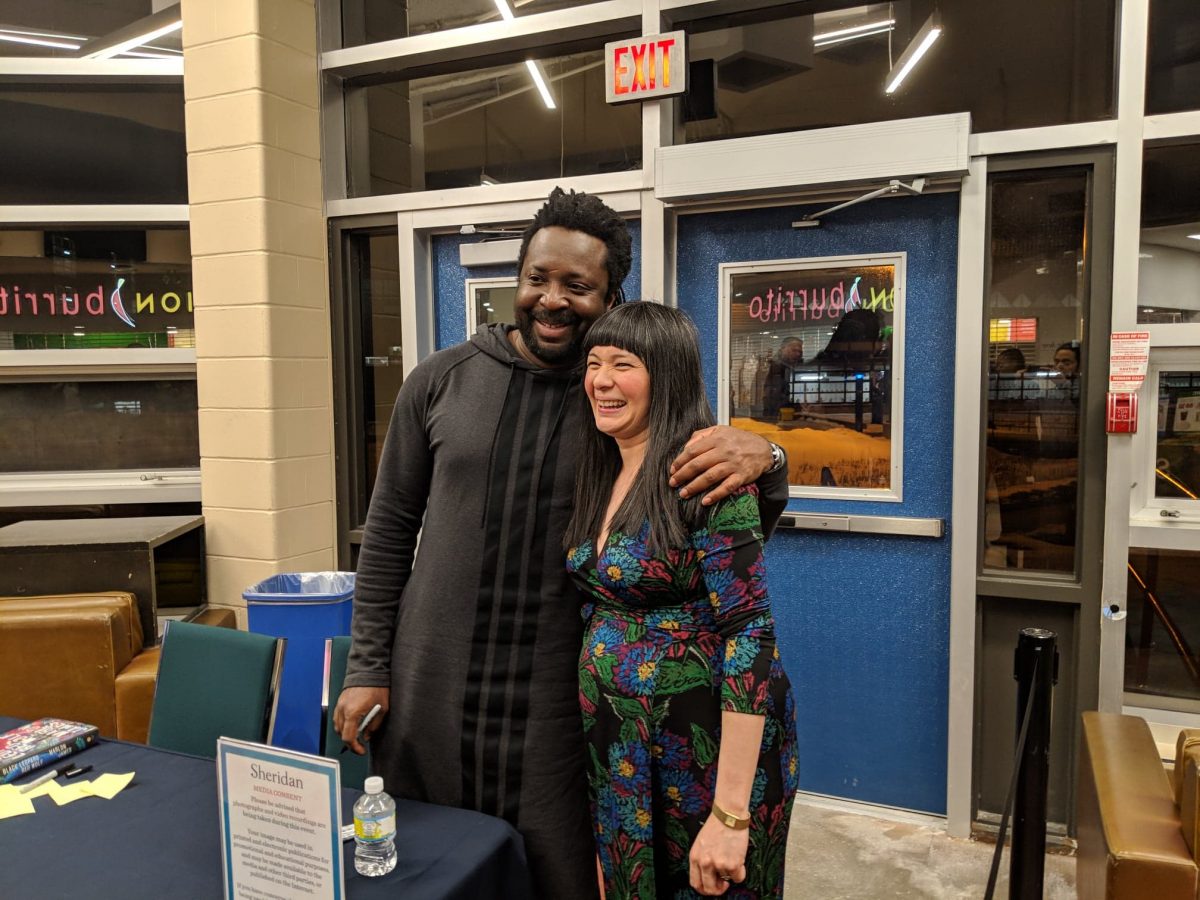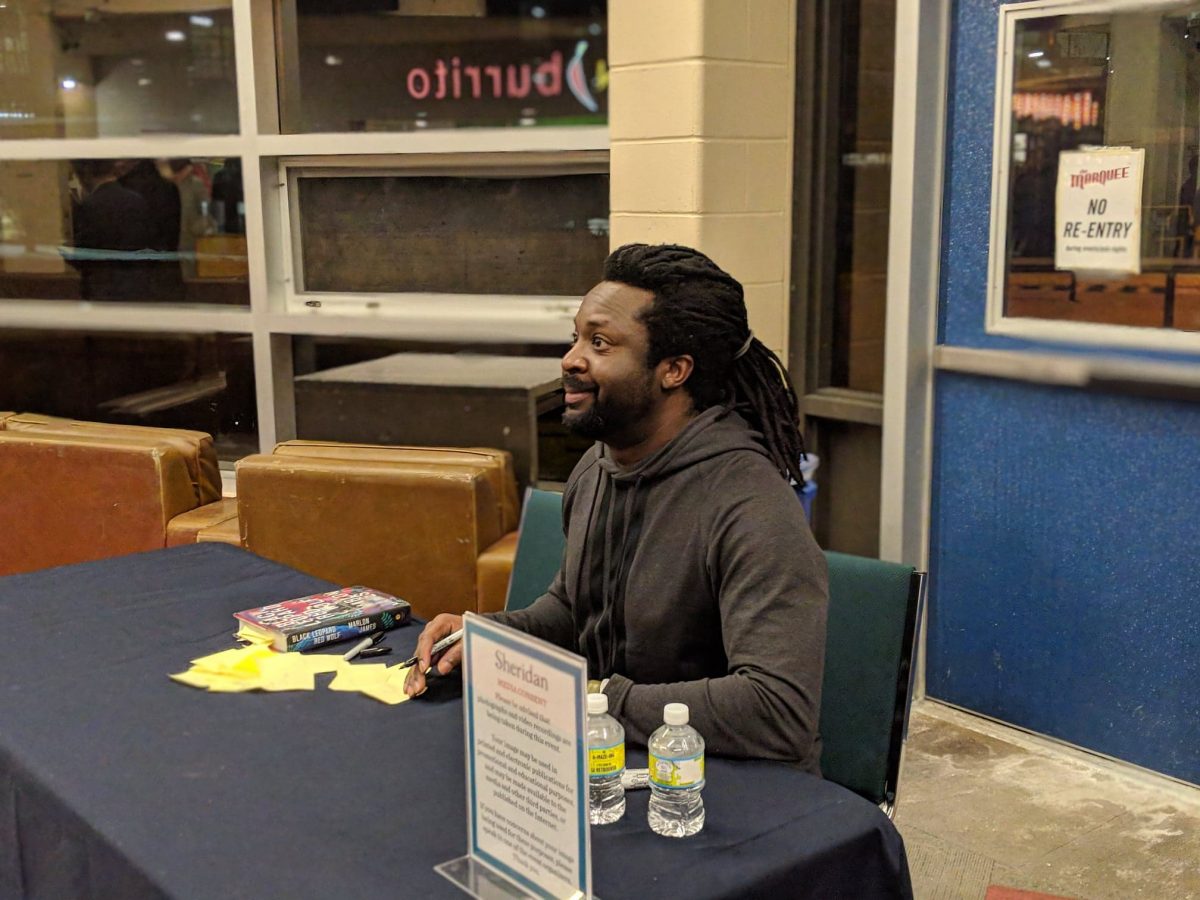By Emanuel George

Marlon James visited Sheridan College last week as part of the Sheridan Reads event to talk about his new book Black Leopard Red Wolf. James is a world-renowned author, receiving critical acclaim from his previous Man Booker Prize-winning novel A Brief History of Seven Killings.
His latest book is the first in the Dark Star series and is making another huge splash in the literary world. This book follows a character named Tracker on a journey through South Africa as he searches for a missing boy. This is not a typical fantasy narrative made apparent by the first line of the book which proclaims “The boy is already dead. What more is there to know?” And to answer that question, it’s a lot. The story is a truly gripping tale unlike any most reader will be accustomed to.
The event was hosted at the Trafalgar Campus Marquee, which was to officially start at 7 p.m. but students were let in early for a meet and greet with James.

When the clock struck seven, people flooded through the doors. The Marquee was jampacked. The room absolutely buzzing with energy and anticipation for what might be discussed.
James sat down with Sheridan’s Giller Prize-nominated author and professor in the Creative Writing and Publishing program, Thea Lim, for a Q and A.

A focus of Lim’s conversation with James was his use of violence in his writing. More specifically they talked about how to balance the use of violence without glamorizing it.
“What is happening is these movies are selling violence without suffering and I think the reason why I get attacked is that I don’t separate those. Because violence comes with suffering and violence comes with the aftermath. How can there be non-explicit violence? Violence is an explicit act. You are sometimes literally breaking a body open. I think for me the most difficult scenes in my book I have to turn myself into a reporter. So my advice to all my fiction students is to take a journalism class because you have to go in and get the story but you have to be respectful but explicit or instead of explicit clear. Because I think when you shirk on it it’s kind of an insult to people who suffer it.
“There were some people who said they can’t read my novel because it’s about slavery and I’m like I’m going to guess reading about slavery is slightly better than being a slave. I think this is how you know when you have slid into a kind of pornography of violence when we become numb. If it’s still visceral if it’s still disturbing it’s doing its thing.”

James’ new story is a mix and match of African myths and folklores he had researched for this novel. He spoke with Lim on why he felt this kind of storytelling was important.
“I actually do think stories heal or I feel stories make a space for it,” James said. “We tell stories in order to live and we tell stories in order to live on and we tell stories in order to persevere and you know we tell stories to bring glory to those who don’t have glory — to get glory. Ultimately storytelling is a healing act. It is certainly a community-building act.”
After the event, James spoke with The Sun and added, “I feel like I wrote this story mostly for selfish reasons. That being that it was a story I was looking for and wanted to read. There is importance behind myths that go much deeper. For example, Robin Hood; it tells a deeper story of what it means to be good and just. What makes my story different is it has black people and doesn’t follow the traditional Christian narrative structure.”
James concluded the interview by giving this advice “I know it’s going to sound cliché but believe in yourself because there are going to be times when you are the only one that does.”
Black Leopard Red Wolf is out now and available for purchase online from both Amazon and Indigo. And with movie rights already bought by Michael B. Jordan, it won’t be long until it hits the big screen.



